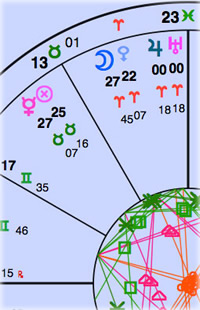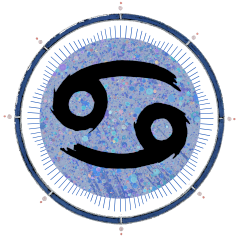Dear Friend and Reader:
Just one more week till the next monthly horoscope. Actually, I am scheduled to finish next Tuesday’s long monthly edition today. I’ve learned to schedule this job over three consecutive days, as opposed to a weekly horoscope, which takes about three hours to write if I have a good wind at my back.
 Today I want to tell you a little about what I do a few times a year when I’m not writing for Planet Waves, which is offer talks and workshops. I have two coming up over the next two weekends, and I’m including the descriptions below so you can get a sense of what they’re about.
Today I want to tell you a little about what I do a few times a year when I’m not writing for Planet Waves, which is offer talks and workshops. I have two coming up over the next two weekends, and I’m including the descriptions below so you can get a sense of what they’re about.
In-person presenting is a truly refreshing alternative to spending 15 hours a day online, and I do it whenever I can. I work in lecture format, and workshop-intensive format, presenting on a wide variety of topics (for example, investigative reporting for activists and bloggers).
We don’t learn enough in school and we need to get together and form our own personal universities. Plus, the best way to learn is to teach, if you have the patience. I am lucky; I have the patience, and I love the rewards of integrating my personal knowledge and passing along some of what I’ve learned to the next generations on the planet (and as is often the case, to my elders).
Yet conferences are about more than getting together to share information: they are about actually meeting. While we live in a kind of disembodied state on the Internet, it’s vital to get back into that space of actual eye contact and physical presence when we can.
You will see the title of the first conference presentation as the lead article in Planet Waves Astrology News, which will be cross posted to Cosmic Confidential as well.
You may have heard a version of the NCGR presentation a few months ago on Daily Astrology & Adventure, our main blog — I developed and rehearsed the presentation at a meeting of our local NCGR chapter, and posted the audio. With any luck at all, I’ll be posting the audio to both of these on Planet Waves, as well as blogging on both conferences as they happen.
See you kids in your inbox on Friday.
Peace & passion,
![]()
![]()
Presentation at Poly Living 2010 on Feb. 20, by Eric Francis (in Philadelphia)
Our current definitions of relationship models — monogamy and polyamory — supposedly distinguish between whether a person has one partner or more than one. Yet about half of all ‘monogamous’ people have, or have had, sex outside a monogamous commitment; and all polyamorous people are involved in one-on-one relationships. Maybe they have more in common than we thought.
In truth, every relationship is based on each partner’s inner relationship to self, and this is the most significant factor to consider in how they relate to others. Further, all relationships with others are one-on-one bonds, no matter what their apparent style. These one-on-one relationships, whether sexual or not, whether ‘monogamous’ or ‘polyamorous’, each exist as part of much wider and far-reaching social networks.
Interpersonal relationships can support or hinder one’s relationship with oneself to varying degrees. Relationships are either supported by communities where they exist, or not; relationships support community, or not. Our prior dichotomy between relational styles, i.e., ‘monogamous versus polyamorous’, is neither descriptive nor useful at describing how real-life relationships work, since in effect, all relationships have important elements of both concepts. This presentation explores these real-life factors in our contacts with others, and how they relate to our wider social experiences.
![]()
Presentation at the NCGR Planetary Revolution: Geocosmic Alchemy II conference on Feb. 27, by Eric Francis (in Cambridge, MA)
Since the 1977 discovery of Chiron, astronomers have discovered thousands of new planets and established several important new classes of planets orbiting our Sun. The most recent include Eris, the planet that compelled scientists to define the word ‘planet’ and reorganize their notion of the solar system. Yet astrology gives these discoveries only minimal attention.
Perhaps this is because they open up challenging areas of psychology rarely considered by astrologers. Maybe established astrologers don’t want to think they don’t really understand their own natal chart — a normal response to having five or 10 or 100 new points dropped in.
Using Eris, Chiron and Nessus as examples, Eric Francis will establish a foundation for using these planets in your counseling practice and written forecasts. You’ll learn the difference between an asteroid, a Centaur and a TNO (the three main classes of new discoveries).
Author of Small World Stories, Next World Stories and Cosmic Confidential, Eric has been researching the new discoveries since 1994 and teaching about them in the United States and Europe since 1998.



